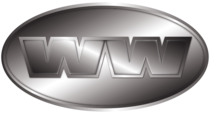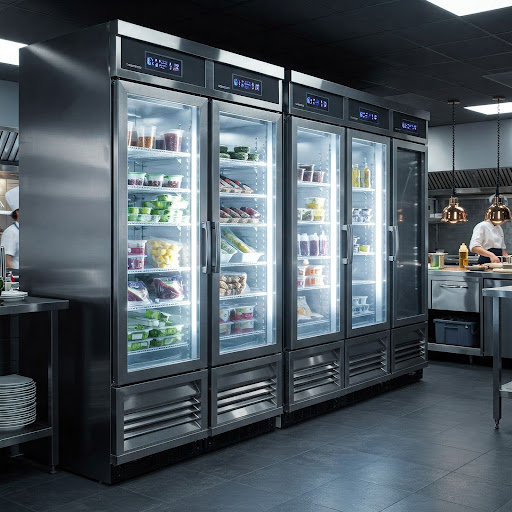How to Clean a Commercial Refrigerator: Expert Maintenance Tips for Business Owners
A clean commercial refrigerator is essential for keeping food fresh, running your business smoothly, and staying compliant with BC health regulations. Whether you own a restaurant, grocery store, or any food service business, regular maintenance helps prevent breakdowns, reduces energy costs, and ensures everything operates efficiently.
British Columbia has strict guidelines for food safety, and keeping your refrigeration system in top condition is part of that. This guide will walk you through the best practices for cleaning your commercial fridge, common mistakes to avoid, and the regulations you need to know.
Why Regular Cleaning is Essential
- Food Safety Compliance – Prevents contamination and keeps food safe for customers.
- Improved Efficiency – A clean unit runs better, uses less energy, and lasts longer.
- Regulatory Compliance – Meets BC health standards and helps avoid costly violations.
Step-by-Step Guide to Cleaning a Commercial Refrigerator
1. Preparation
- Turn off and unplug the refrigerator for safety.
- Remove all food and store it in another cold storage area.
- Wear protective gloves to handle cleaning supplies.
2. Cleaning the Interior
- Take out shelves and drawers and wash them in warm, soapy water.
- Wipe down all interior surfaces with a food-safe cleaner or a mix of baking soda and water.
- Scrub stubborn stains with a soft-bristle brush or non-abrasive sponge.
- Dry everything completely before putting shelves and drawers back.
3. Sanitizing and Deodorizing
- Use a food-safe sanitizer or a diluted bleach solution.
- Avoid harsh chemicals that could leave residue.
- Place an open box of baking soda inside to keep odors in check.
4. Cleaning the Condenser Coils and Fans
- Vacuum dust and debris from the condenser coils at least once a month.
- Wipe down fan blades to improve airflow and efficiency.
5. Inspecting and Maintaining Door Seals
- Check for cracks or worn-out seals that could lead to energy loss.
- Clean gaskets with warm, soapy water to keep them flexible and airtight.
- Replace damaged seals to maintain proper cooling.
Common Mistakes to Avoid
- Using harsh chemicals that damage surfaces.
- Forgetting to clean condenser coils, which lowers efficiency.
- Ignoring spills and leaks, which can cause mold and bacteria buildup.
Regulations for Commercial Refrigeration in BC
If you operate a food business in British Columbia, you must follow the Food Premises Regulation (BC Reg. 210/99), which includes:
- Temperature Control – Hazardous foods must be kept at 4°C (40°F) or lower, and thermometers must be accurate within 1°C.
- Cleaning & Sanitation – Refrigeration units must be cleaned regularly and kept in sanitary condition.
- Employee Training – At least one staff member on-site must have valid FOODSAFE certification.
- Proper Chemical Storage – Cleaning supplies must be stored away from food to prevent contamination.
- Health Officer Compliance – Any potential health risks must be reported to local health authorities right away.
How Often Should You Clean a Commercial Refrigerator?
- Daily: Wipe up spills and sanitize high-touch areas like handles.
- Weekly: Clean shelves and interior surfaces.
- Monthly: Vacuum condenser coils and check door seals.
- Quarterly: Perform a full maintenance check, including fans and air filters.
Signs Your Refrigerator Needs Immediate Attention
- Strange odors or mold growth inside the unit.
- Frost buildup affecting cooling performance.
- Temperature fluctuations that lead to food spoilage.
- Higher energy bills, signaling inefficiency.
Professional Maintenance vs. DIY Cleaning
While regular cleaning can be done in-house, professional maintenance ensures your refrigeration system stays in peak condition. Technicians can spot early signs of wear and prevent costly repairs before they happen.
Keeping Your Commercial Refrigerator in Top Shape
A well-maintained commercial refrigerator helps protect your food, lower your energy bills, and keep your business compliant with BC health standards. Following these cleaning and maintenance steps will keep your system running efficiently and prevent unexpected breakdowns.
For expert commercial refrigeration services, 24/7 emergency repairs, or scheduled maintenance, contact Waywest Mechanical Ltd. today!

